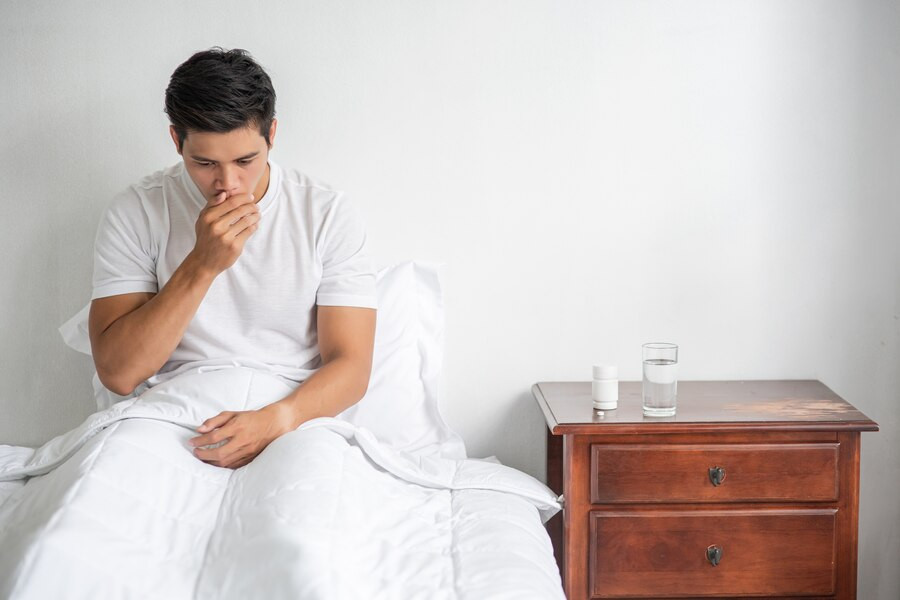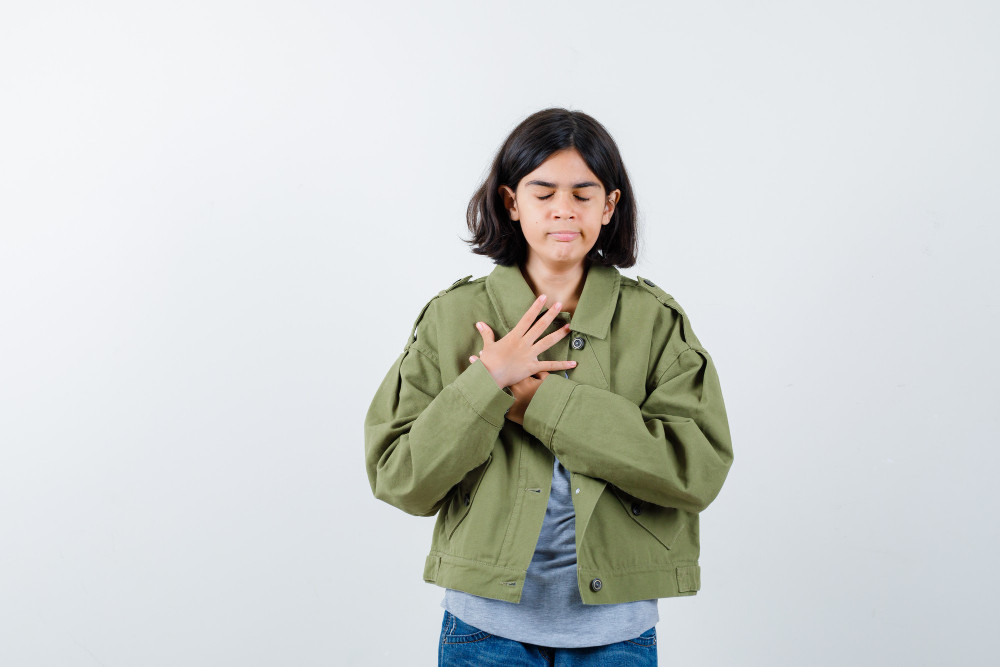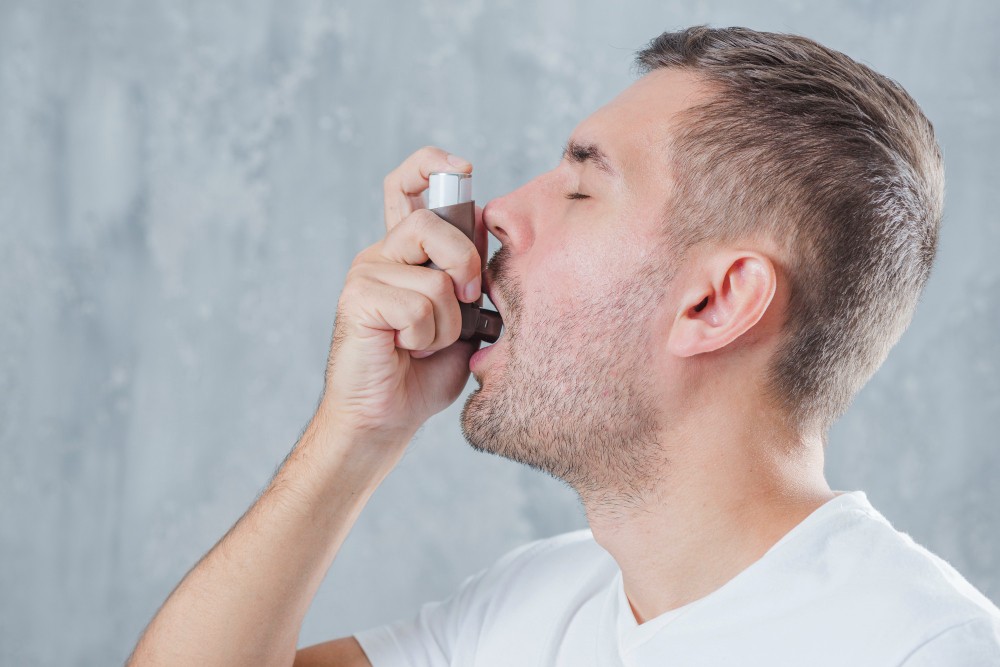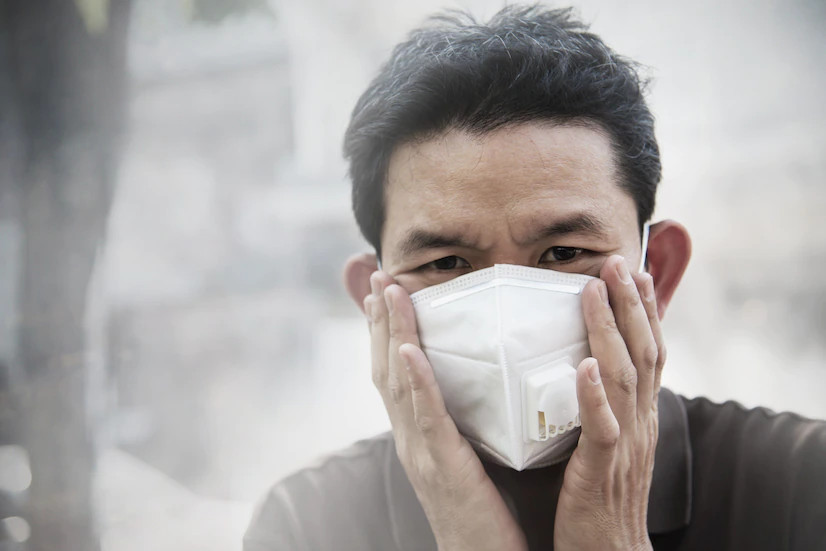Insufficient airflow to the lungs results in shortness of breath. This frequently occurs as a result of intense physical activity, allergies, asthma attacks, heart attacks, respiratory infections, and heart failure. Shortness of breath can occur at any time, including the morning, afternoon, and nighttime. Shortness of breath at night can cause significant discomfort and disrupt sleep. What causes shortness of breath that happens at night?
Causes of Shortness of Breath at Night
Asthma (nocturnal asthma)
One of the most common causes of dyspnea at night is asthma. Nocturnal asthma is the term for asthma symptoms that typically worsen at night.
Colder night air, a lying-down sleeping position, and a natural decline in lung function at night can all cause shortness of breath. In addition to shortness of breath, you might experience coughing, wheezing, and a feeling of heaviness in the chest.
GERD
Gastroesophageal Reflux Disease (GERD) is a condition in which stomach acid flows continually into the esophagus. This condition happens when the lower esophageal sphincter muscle weakens to the point where it no longer functions effectively. As a result, stomach acid could return back into the esophagus.
Irritation may happen if stomach acid rises into the esophagus. Breathing becomes difficult due to inflammation and irritation-induced airway constriction. In addition to causing swelling in the voice cords and larynx, increased stomach acid may additionally cause someone to feel constricted or as though they are suffocating.
Read more: Symptoms Of Mycopaplasma Pneumonia In Children Under The Age Of 5
Sleep apnea
Breathing periodically stops during sleep, a condition known as sleep apnea that can cause shortness of breath. The airway will close and air flow stops. The body will then wake up in response from the brain, opening the airway again. You experience shortness of breath or a sense of suffocation, which wakes you up.
Allergies and sinusitis
Shortness of breath and congestion in the nose are common symptoms of allergies and sinusitis, especially in the evening. The upper respiratory tract might become inflamed and swelling due to allergies. Breathlessness results from the airflow becoming smaller due to this inflammatory process.
Increased mucus production is another common symptom of allergies, and while someone is lying down, this mucus might run to the back of the throat. Breathing problems or pain may result from this disorder.
Read more: How To Prevent Asma From Relapse In The Rainy Season
Heart disease
Heart disease, particularly heart failure, may result in shortness of breath during the night. This is related to a decline in the heart's ability to pump blood. As a result, the pulmonary blood vessels experience increased pressure and decreased oxygen levels, all of which contribute to difficulties breathing, particularly while lying down or sleeping.
Anxiety and panic attacks
When you are anxious or experiencing a panic attack, your breathing will become more rapid and shallow. Rapid, shallow breathing reduces carbon dioxide levels in the blood, which may lead to dizziness, tingling in the hands and feet, and shortness of breath.
In order to deal with nocturnal dyspnea, it is important to determine the primary cause. If shortness of breath becomes worse or uncomfortable, you can either visit a doctor or make use of the consultation features that are available in the Ai Care application by downloading the Ai Care application from the App Store or Play Store.
Looking for more information about other diseases? Click here!
- dr. Alvidiani Agustina Damanik
Health Direct (2023). Shortness of breath. Available from: https://www.healthdirect.gov.au/shortness-of-breath
Natalie Silver (2022). Why Do I Have Shortness of Breath at Night?. Available from: https://www.healthline.com/health/sleep/shortness-of-breath-at-night
Cleveland Clinic (2022). Dyspnea. Available from: https://my.clevelandclinic.org/health/symptoms/16942-dyspnea
Cleveland Clinic (2023). Orthopnea. Available from: https://my.clevelandclinic.org/health/symptoms/orthopnea
WebMD (2022). Nocturnal Asthma (Nighttime Asthma). Available from: https://www.webmd.com/asthma/nocturnal-asthma-nighttime-asthma
Mayo Clinic (2024). Gastroesophageal reflux disease (GERD). Available from: https://www.mayoclinic.org/diseases-conditions/gerd/symptoms-causes/syc-20361940
National Heart, Lung, and Blood Institute (2022). What Is Sleep Apnea?. Available from: https://www.nhlbi.nih.gov/health/sleep-apnea
Penn Medicine (2022). Sinus Infections (Sinusitis). Available from: https://www.pennmedicine.org/for-patients-and-visitors/patient-information/conditions-treated-a-to-z/sinus-infections-sinusitis
British Heart Foundation (2021). Shortness of breath: what causes it and how can you manage it?. Available from: https://www.bhf.org.uk/informationsupport/heart-matters-magazine/medical/shortness-of-breath











